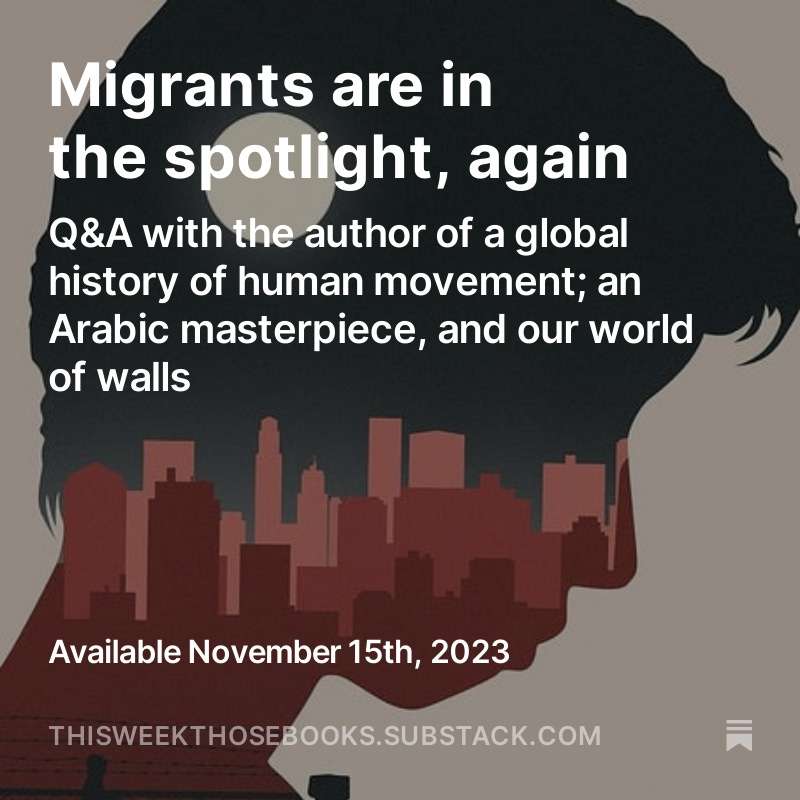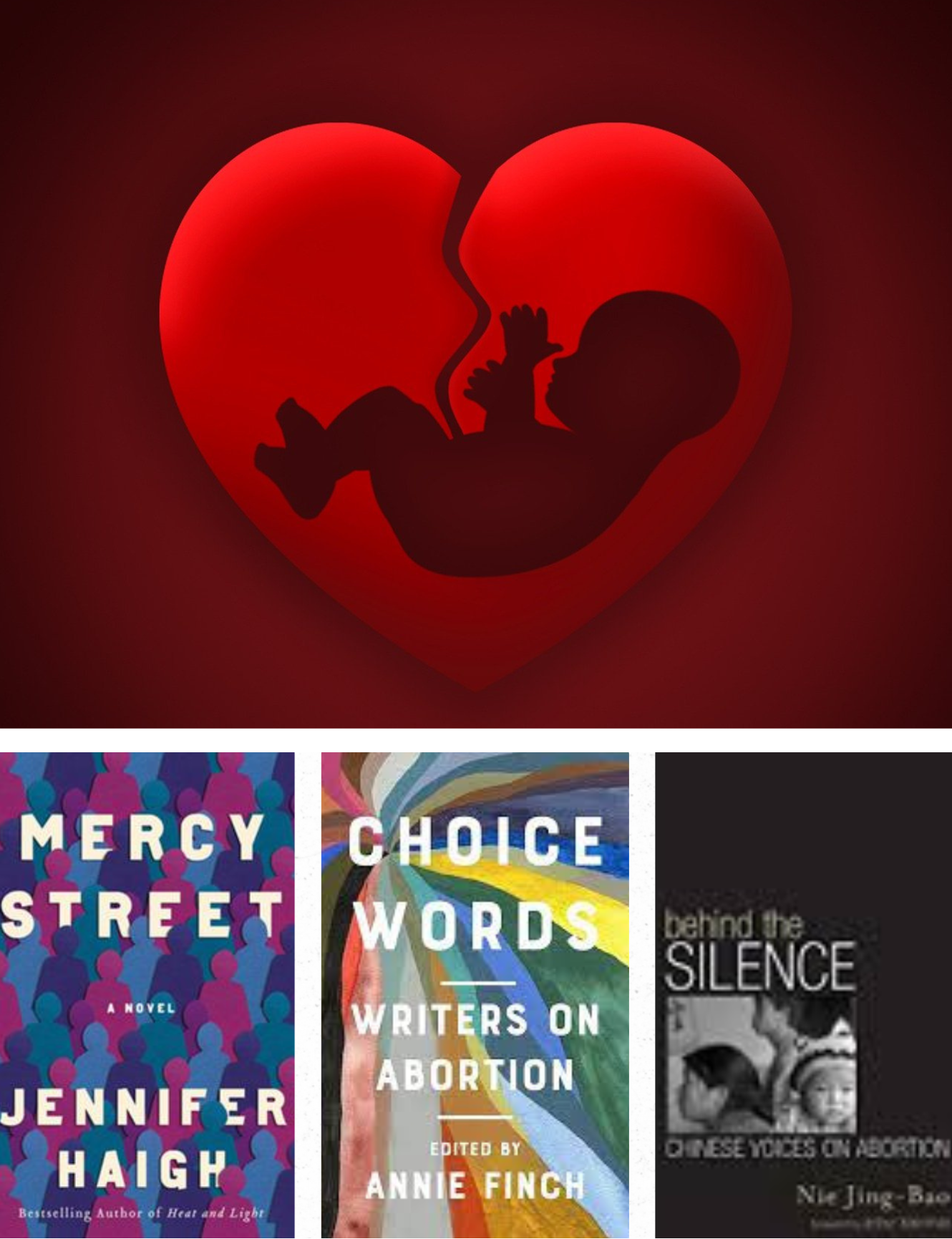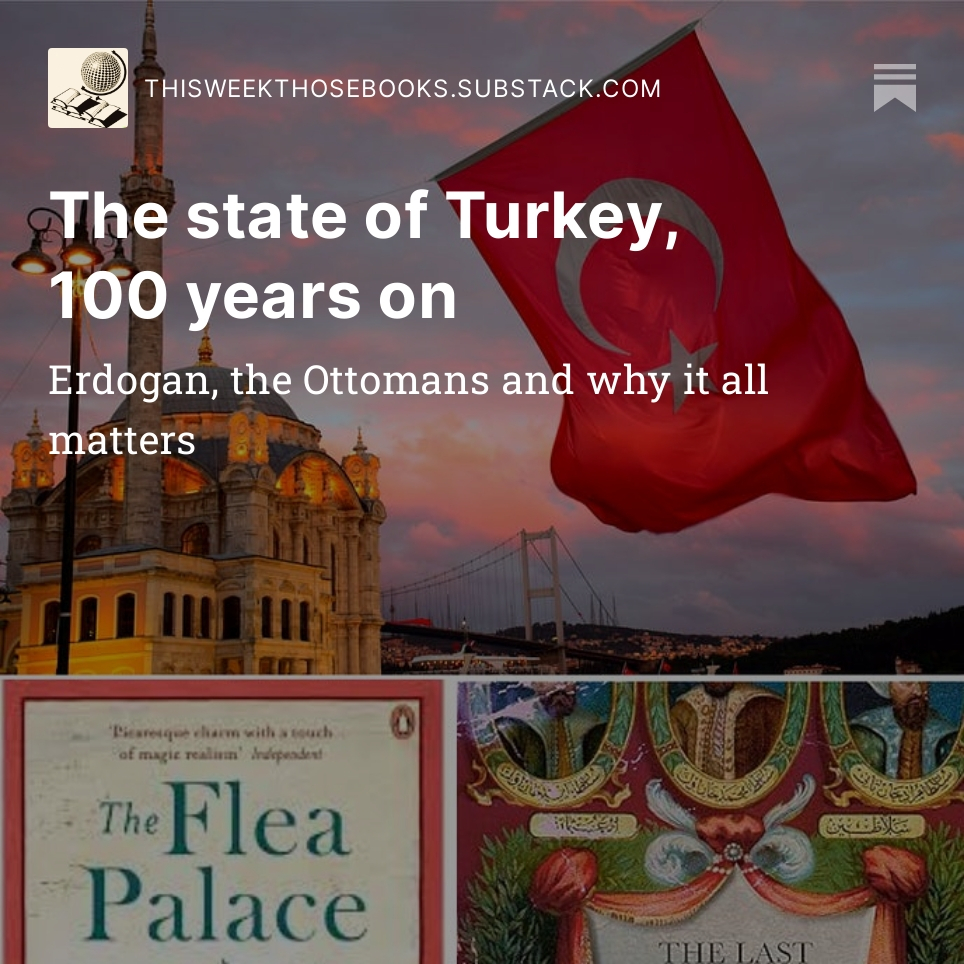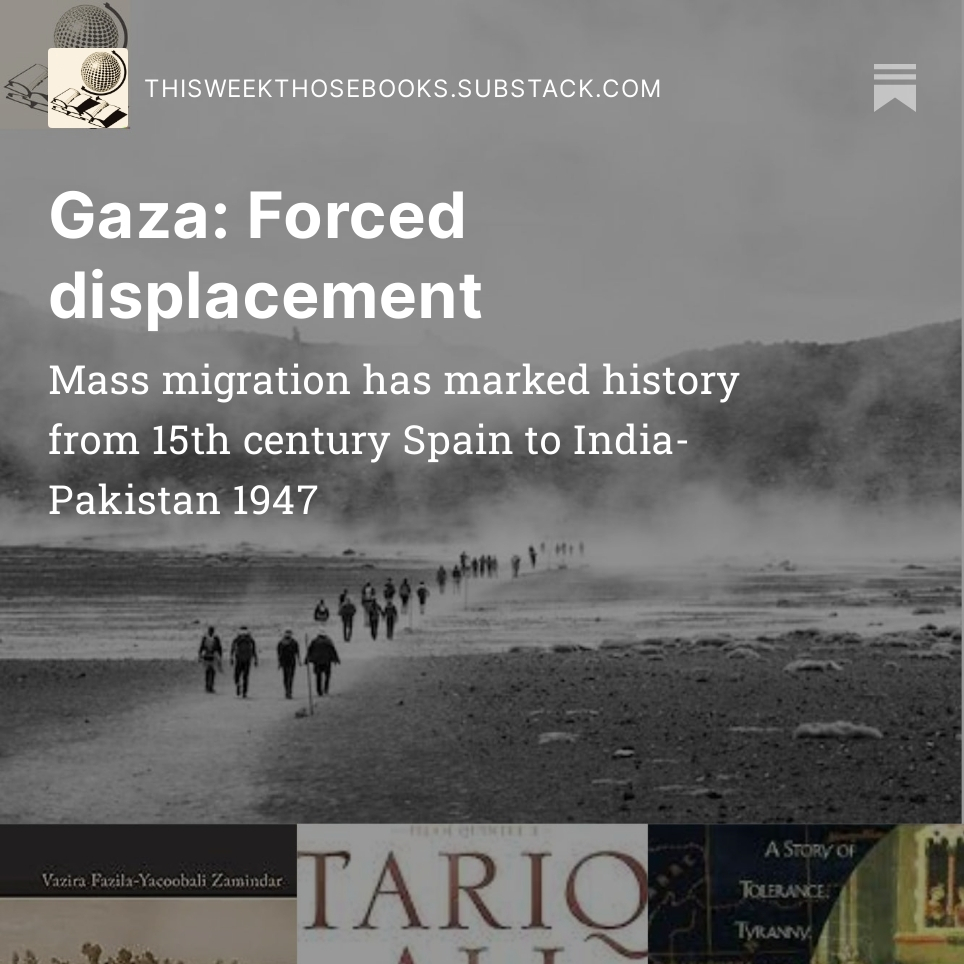Migrants are in the spotlight, again

Here’s the full version of the Nov15 This Week, Those Books. Sign up for free at https://thisweekthosebooks.com/ and get the post the day it drops
Welcome to This Week, Those Books, your rundown on books new and old that resonate with the week’s big news story.
The few minutes it takes to read this newsletter will make you smarter, faster. If you’d rather listen, click on the audio button above for a human, not AI, voiceover by my close collaborator Michael.
Exciting news: We have an interview with Sam Miller, friend, former BBC colleague and author of the brilliant new book Migrants: The Story of Us All.
Please share. Find me on Twitter, LinkedIn, Facebook or YouTube.
Yours,

The Big Story:
Britain’s highest court decides on the government’ policy of sending asylum-seekers to Rwanda. The issue of refugees and migrants is politically fraught in many parts of the world.
- Germany, Italy, Austria and Denmark want to outsource uninvited migrants to countries willing to take them for a fee.
- America’s Republican party blames President Joe Biden for an “open borders” policy with Mexico amid soaring numbers of migrants and asylum-seekers.
- Pakistan began evicting undocumented Afghans on November 1, but says 1.4 million registered refugees can stay until year-end.
The Backstory:
- The United Nations estimates that the number of international migrants worldwide – people residing in a country other than their country of birth – reached 281 million in 2020.
- Most international migrants reside in Asia and Europe (31% each), followed by northern America (21%).
This Week, Those Books:
- A new global history of human migration.
- A novel about a migrant who returned to his home in Sudan.
- A television journalist explores a world with more walls than ever before.
- Migrants: The Story of Us All
By: Sam Miller
Publisher: Abacus
Year: 2023

Q & A with Sam Miller:

You’ve been a BBC journalist and now you write books. How do you think your book illuminates the migration issue, globally?
In most parts of the world, the issue is so toxic, that it’s very hard to have reasoned discussion about it. And I deliberately steer clear of those toxic arguments.
Instead, I ask readers to reflect on our history – and remember that we are all migrants or descendants of migrants. This doesn’t make migration (or migrants) a good or bad thing – but it’s a recognition that our species, more so than any other land mammal, has been and still is fundamentally migratory. A wise alien appearing on this planet, would observe pretty quickly that the most distinctive feature of humans is that we are everywhere, while our closest cousins – chimpanzees and gorillas – are still living in the same part of Africa where we left them millions of years ago. Migration is a fundamental part of the human condition, and I show in the book, that until recently we admitted this to ourselves. Now in many places around the world, we don’t.
And it’s my view that to pretend or claim that we can simply stop migration with a new law just isn’t realistic. It hasn’t worked in the past and it doesn’t work now – though it may affect the kinds of people who try to migrate. Harsh barriers to migration usually make it more likely that persuasive and/or desperate risk-takers will successfully migrate, or fail in the process. As Janet Napolitano former governor of the US border state of Arizona, famously said, “Show me a fifty-foot wall; and I’ll show you a fifty-one foot ladder.”
The only way of stopping migration is to make one’s country so unpleasant that no one wants to move there. North Korea is an extreme example of this. But then you get the opposite problem. People want to leave…East Germany is another good example.
How do you see the issue of migration and national borders changing in the future? In fact, do you see it changing?
It’s not something I’ve really worked on. But it is clear that pressures of migration will increase massively because of climate change. Developed countries will also face major labour shortages because their populations are ageing. And most governments are not giving enough thought to either of these issues.
Are there any noteworthy examples of countries adopting a positive attitude to migrants and the issue of migration?
Attitudes towards migration tend to ebb and flow depending on economic and electoral cycles. Governments are more relaxed about migration when their economies are doing well, and when elections are over.

- Season of Migration to the North
By: Tayeb Salih
Publisher: Heinemann
Year: 1969 (English translation)

This novel is about a young man who returns to Sudan from Europe with a PhD and a deeply changed sense of self. The doctorate gives him a notion of his own consequence. But he’s a different man to the one who left his village on the Nile. In the end, the protagonist dives into the river, struggling to overcome a moment of physical and psychological crisis.

- Divided: Why we’re Living in an Age of Walls
By: Tim Marshall
Publisher: Elliott & Thompson
Year: 2018

Sky News’ former foreign affairs editor Tim Marshall starts his account with the border wall between Israel and the West Bank. It is, he says, “the most forbidding and hostile in the world”. He goes on to offer these stark facts: “Thousands of miles of walls and fences have gone up around the world in the twenty-first century. At least sixty-five countries, more than a third of the world’s nation states, have barriers along their borders; half of those erected since the Second World War sprang up between 2000 and now”.
A good primer on a divisive issue.




